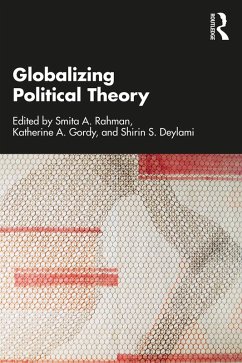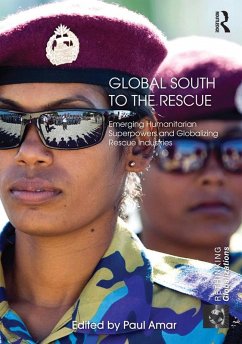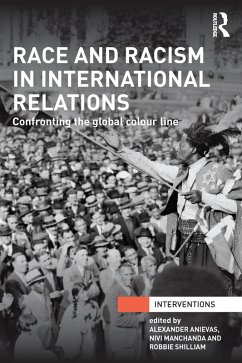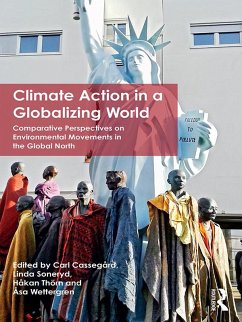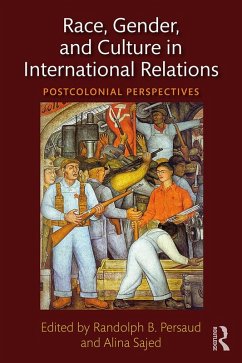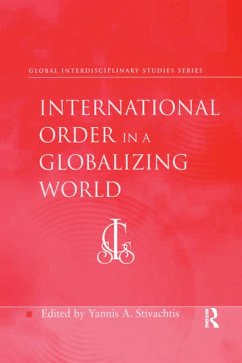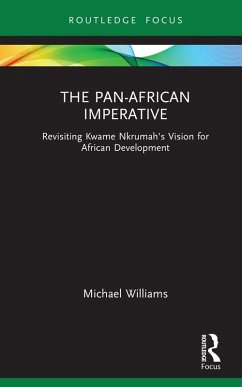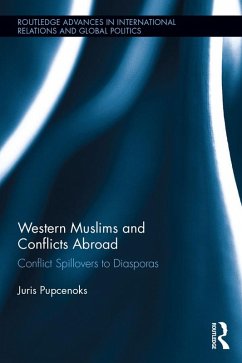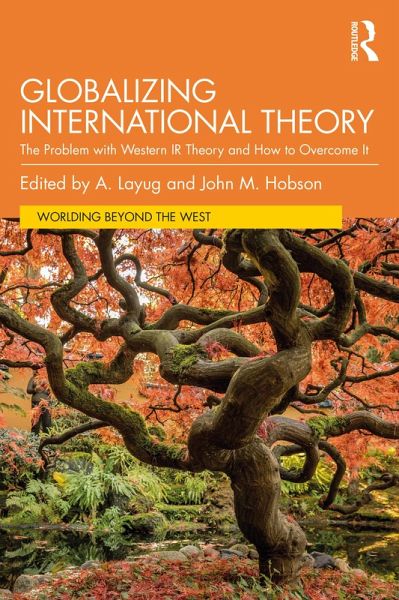
Globalizing International Theory (eBook, ePUB)
The Problem with Western IR Theory and How to Overcome It
Redaktion: Layug, A.; Hobson, John M.
Versandkostenfrei!
Sofort per Download lieferbar
38,95 €
inkl. MwSt.
Weitere Ausgaben:

PAYBACK Punkte
19 °P sammeln!
Globalizing International Theory adds to the literature on non-Western international relations (IR) theory by probing the question of what it means to globalize international theory.The book starts with the premise that international theory is unfinished, incomplete, and homogenous because it provides a limited conception of the international which, in turn, derives from its partiality that reflects its narrow Western-centric bias. The contributors argue that the IR vision of the world is projected through a polarizing Western-filtered lens. Rather than utilizing an objective set of explanator...
Globalizing International Theory adds to the literature on non-Western international relations (IR) theory by probing the question of what it means to globalize international theory.
The book starts with the premise that international theory is unfinished, incomplete, and homogenous because it provides a limited conception of the international which, in turn, derives from its partiality that reflects its narrow Western-centric bias. The contributors argue that the IR vision of the world is projected through a polarizing Western-filtered lens. Rather than utilizing an objective set of explanatory tools for explaining world politics, the reality is that orthodox IR theory only tells us why 'the West is best' and why 'the Rest should become like the West'. This means that international theory is not truly international. In provincializing Western international theory, this volume navigates beyond the Eurocentric and imperial frontier of the prevailing limited conception of the international to explore the hidden contributions to international theory which can be found in the non-Western world. Bringing in excluded, non-Western conceptions of international theory highlights a broader conception of the international. The book provides a framework for theorizing globally, exploring the fundamental problems with Western IR theory, and how to overcome them.
This book will be used by advanced undergraduate and postgraduate students, scholars, researchers, and IR theorists worldwide who are interested in non-Western IR theory. It will help navigate the problem of internationalness in the face of the grand theoretical problem of our time: the use and misuse of international theory in making sense of, and responding to, the complex global realities of the twenty-first century.
The book starts with the premise that international theory is unfinished, incomplete, and homogenous because it provides a limited conception of the international which, in turn, derives from its partiality that reflects its narrow Western-centric bias. The contributors argue that the IR vision of the world is projected through a polarizing Western-filtered lens. Rather than utilizing an objective set of explanatory tools for explaining world politics, the reality is that orthodox IR theory only tells us why 'the West is best' and why 'the Rest should become like the West'. This means that international theory is not truly international. In provincializing Western international theory, this volume navigates beyond the Eurocentric and imperial frontier of the prevailing limited conception of the international to explore the hidden contributions to international theory which can be found in the non-Western world. Bringing in excluded, non-Western conceptions of international theory highlights a broader conception of the international. The book provides a framework for theorizing globally, exploring the fundamental problems with Western IR theory, and how to overcome them.
This book will be used by advanced undergraduate and postgraduate students, scholars, researchers, and IR theorists worldwide who are interested in non-Western IR theory. It will help navigate the problem of internationalness in the face of the grand theoretical problem of our time: the use and misuse of international theory in making sense of, and responding to, the complex global realities of the twenty-first century.
Dieser Download kann aus rechtlichen Gründen nur mit Rechnungsadresse in A, B, BG, CY, CZ, D, DK, EW, E, FIN, F, GR, HR, H, IRL, I, LT, L, LR, M, NL, PL, P, R, S, SLO, SK ausgeliefert werden.




